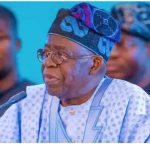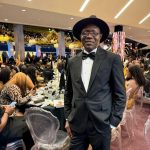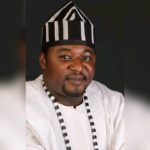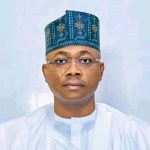Negative effects of social media on powers, influence of electorates, community leaders in Nigeria
The social media has been identified as one of the instrument that has whittle down the powers and influence of the electorates and community leaders in political space in Nigeria, Kogi State and in particular, Kogi Central.
Okeji Daniel who gave this hint in a statement issued and made available to Journalists in Lokoja on Sunday, noted that despite the positive impact of the social media across the globe, it has served as instrument of deceit by gullible politicians in Nigeria, particularly in Kogi state.
Daniel a Social commentator, In the statement titled ‘Political Relevance In The Face Of Social Media Politics’, said even though social media, has transformed the world, making marketing easier, reconnecting long-lost friends, strengthening family bonds, and bringing business associates closer, it has also come with other negative effects.
Still talking on the positive effects of the social media, he said “It has opened up access to information, images, and live events in ways that were unimaginable in 2007.
“Between 2007 and 2010, under the leadership of former Governor Ibrahim Idris, Kogi Central Senatorial District was turned into a war zone by miscreants protecting their “meal tickets” from their “Ogas at the top.” Sadly, the world couldn’t hear our cries because there were no live videos, no instant photo uploads, no social media presence to bear witness to the killings and chaos.
“But as we count the benefits of social media, we must also acknowledge its drawbacks especially in the political space of Nigeria, Kogi State, and particularly Kogi Central.
“I grew up in Enyinare, in Onyukoko ward of Okene Local Government. Back then, Onyukoko was home to respected political figures filled with wisdom. Politicians from all over the state came to seek their guidance and blessings. These elders would assess aspirants, ask questions, and give directives their followers trusted beyond money or sweet words.
“I remember when Senator Ahmed.T. Ahmed would frequently visit Adai Oneta’s house in Enyinare. He was humble and accessible. We could proudly point at his photo and say, “This is Adai Ahmed.T. Ahmed.” Back then, the only source of political news was Otite’s “Uto Onyi Avi” radio program.
He maintained that, “today, the political system has been deeply influenced, some would say corrupted by social media. Many politicians have grown more proud and distant. The digital space has birthed followers who are manipulative and cunning. It’s now common to see someone empower 10 people but post pictures of 100, just to earn social media validation.
“Worse still, social media has disconnected many aspirants from the wisdom of elders. Instead of consulting respected leaders for direction, they hire Facebook influencers to polish their image, posting pictures in white agbada and expensive veils, posing as “messiahs” of the people.
“I grew up seeing politicians like Senator Ahmed.T. Ahmed, Hon. Etudaiye, Senator Ohize, and Senator Ohiare personally visiting political elders, even in the middle of the night. Today’s aspirants would rather remain in their Lokoja or Abuja residences, waiting for constituents to come in large numbers just so they can take a photo for Facebook.
“Presently, the surest way to gain political favor is to lavish praise on politicians online regardless of their real character. You must suspend your conscience, exaggerate their achievements, and post what they want to hear. Do that, and you’ll get a handshake and a few naira notes.
“We are in an era where honesty is met with hostility. Dare to speak truth to a politician, and you risk being blocked on every platform.
This situation is not limited to any particular zone or zones. It has become a general problem.
How dare you advise a rich man?
This phase of “social media politics” may not last forever. When the likes and followers stop translating into real votes, and election after election is lost, the only way forward will be to return to the roots where community elders still hold wisdom. Social media will then become a tool, not the foundation, of political relevance.
According to him, while social media has transformed the way people communicate and mobilize, he said it is equally essential to recognize its limitations and the potential for misinformation and ineffectiveness to garner adequate votes on the ground.
“In this context, an exquisite strategy that embraces both traditional and modern methods of consultation and engagement is vital. By synthesizing these approaches, we can foster more informed and inclusive political discourse.
“In conclusion, as we learn from the past, let us strive for a political culture that values thoughtful dialogue over divisive rhetoric, ensuring that our engagements, both online and offline serves to strengthen democracy (participation) rather than undermine it.











